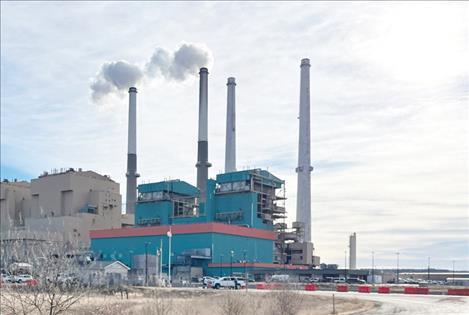Valley Views
Updating Colstrip plant’s pollution controls will save lives, prevent deaths
Hey savvy news reader! Thanks for choosing local.
You are now reading
1 of 3 free articles.
We have known for decades that air pollution harms health. As a nation, we have prioritized cleaning up the air to protect the public. Sulfur dioxide levels in Billings were once unhealthy and Missoula’s air has ranked among some of the worst in the nation. With regulations, those responsible for the pollution were required to clean up the air so that people wouldn’t get sick. It worked. The air in Billings and Missoula is cleaner, and people’s health benefited.
Currently, coal-burning plants are some of the biggest sources of air toxins and release pollutants such as lead, arsenic, and cadmium. We know that each of these toxins harm human health.
We also know there are ways to decrease these pollutants by installing modern pollution controls at power plants. Any day now, the Environmental Protection Agency (EPA) will release an updated Mercury and Air Toxics Standard (MATS) that could protect Montanans from toxic air pollution and preventable health impacts from Montana’s largest polluter of air toxins: the Colstrip coal-fired power plant in eastern Montana.
According to a recent study published in the journal Science, due to substandard and outdated pollution control measures, hundreds of preventable deaths in the U.S. since 1999 have been attributed to emissions from the Colstrip plant. Considering the plant has been in operation for nearly 40 years, this number is likely a considerable underestimate.
In just the last 10 years, the Colstrip plant has released three tons of lead, one-and-a-half tons of arsenic, two tons of chromium, 10 tons of manganese, two tons of nickel and five tons of selenium into the air.
Lead is well-known to be toxic to humans, and is not safe at any exposure level. Lead can affect nearly every organ and system in the human body. Young children are especially susceptible to lead poisoning, which can impair cognitive development and growth as well as lead to cardiovascular, kidney, cognitive, and reproductive malfunction in youth and adults.
We banned leaded gasoline, lead-based paints, and lead in children’s toys to protect public health. Why then has the Colstrip plant been allowed to release two tons of lead into the air in the last 10 years?
Arsenic is a well-documented carcinogen that can contribute to developmental effects, diabetes, pulmonary disease and cardiovascular disease. It can also cause cognitive and developmental malfunction.
Chromium, manganese, nickel, and selenium are all pollutants that can harm human, wildlife and environmental health.
There are 170 similar coal burning units across the country operating with the same technology as the Colstrip plant. Every single one – except the Colstrip plant – has modern pollution controls to specifically minimize particulate pollution and air toxics. These modern pollution controls capture hazardous air pollutants before they enter the air and people breathe them in.
The Colstrip plant is decades behind in implementing these common, industry-standard safety measures. A MATS rule that protects the health of Montanans will require the owners of the Colstrip plant – namely Talen and NorthWestern Energy – to finally implement long-overdue industry-standard measures that protect human health and prevent deaths from toxic air pollution.
All Montanans – children and adults alike – deserve clean air. If every other coal plant owner in the country can modernize facilities to comply with basic air quality standards, so can the owners of the Colstrip plant. Failure to do so means being complicit with ongoing adverse health impacts, including preventable deaths.
Dr. Carol Greiman is a medical doctor in Hardin, Dr. Robert Merchant is a pulmonary specialist in Billings, and Dr. Lisa Fleischer practices family medicine in Kalispell. Dr. David Lehnherr, MD, specialized in diagnostic radiology and is now retired in Red Lodge.
















